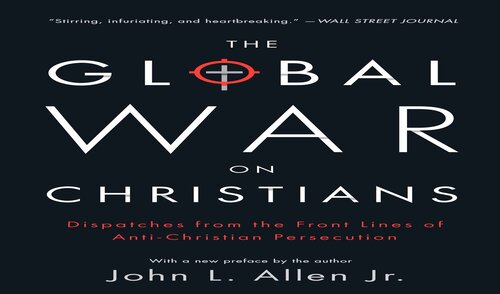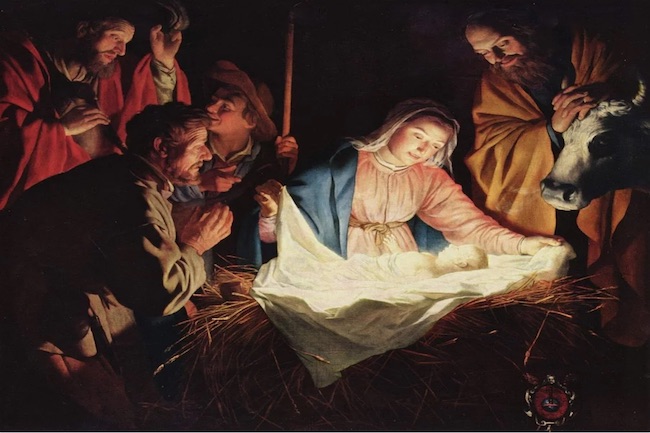The War Upon Christmas Is Part Of The Globalists War On Christianity By Don Boys, Ph.D.for All News Pipeline
Christmas Is Not About Toys, Tinsel And Trees; Not Santa, Shopping, And Snowmen; But Salvation!
Historian Will Durant declared, “The greatest question of our time is not communism versus individualism; not Europe versus America; not even the East versus West. It is whether men can live without God.”
That’s why we celebrate Christmas.
Each nation is made up of all kinds of people: atheists, humanists, secularists, do-gooders, good-doers, traditionalists, religious people of hundreds of religions, church members, nominal Christians, and dedicated Christians. Most of these people celebrate Christmas, at least a secular Christmas. But then, a secular Christmas, while completely legal, is not celebrating Christmas.
Some people have an affinity toward snowmen, Rudolph, a jolly old man, gifts, wild parties, elves, and reindeer. If that’s your thing, go with it. But it isn’t Christmas.
Some dedicated Christians refuse to celebrate Christmas for various reasons. They are correct in their belief that the Bible gives no command to do so, but then there is no biblical command to observe Easter. We are not even sure when Christ was born. Evidently, we don’t need to know that fact. The fact of His birth is sufficient. The day doesn’t matter.
Upper-class Romans believed that Mithra, born from a rock as a youth on December 25, was an infant god, the god of the unconquerable sun. That date was the most sacred day of the year. It is said that Christians, as they rose to some influence, usurped that day for the birth of Christ.
With the reign of Constantine (died A.D. 337), Christianity quickly became more powerful and the dominant religion around the Mediterranean area, the Levant (Syria, Lebanon, Israel, Jordan, part of Turkey), and Central Europe. By the Middle Ages, nominal Christianity had replaced paganism. Roman Catholics slowly dominated all religions throughout Europe, building enormous cathedrals in larger cities and parish churches in smaller towns. The independent Bible Churches continued to operate in their shadow. The Catholics went to church on Christmas Day, jumped through the religious hoops, then left church to celebrate in a raucous, drunken, carnival-like atmosphere somewhat like today’s Mardi Gras.
The Christians in colonial America wanted nothing to do with the drunken partying of European church members, so Christmas was not observed in the 1600s in Puritan colonies. It was even illegal to observe the day in Boston, but Christmas was slowly accepted until it was declared a national holiday in 1870. Jamestown was an exception since it was more secular than the other colonies, and Captain John Smith reported that Christmas was universally observed in Jamestown.
Principled Christians who refuse to observe Christmas are not without ostensible biblical and historical support. Jeremiah 10:2-4 commands, “Thus saith the LORD, Learn not the way of the heathen, and be not dismayed at the signs of heaven; for the heathen are dismayed at them. For the customs of the people are vain: for one cutteth a tree out of the forest, the work of the hands of the workman, with the axe. They deck it with silver and with gold; they fasten it with nails and with hammers, that it move not.”
So, nonobservant Christians claim scriptural support, but it is a perversion of Scripture to give that support. We must never twist Scripture to support what we choose to believe. We frame our beliefs with the proper interpretation of Scripture.

Isaiah 44:14-15 says, “He heweth him down cedars, …Then shall it be for a man to burn: for he will take thereof, and warm himself; yea, he kindleth it, and baketh bread; yea, he maketh a god, and worshippeth it; he maketh it a graven image, and falleth down thereto.” Here, too, is a warning against idolatry in “maketh a god and worshippeth it.”
Even if they are sincere, it is a twisting of Scripture to use those verses to support the refusal to celebrate Christmas.
There is no doubt that many Christmas traditions have roots back into paganism, but that does not require us to reject the holiday. After all, the days of the week are pagan-based, but when we think of Sunday, we don’t think of pagans who worshiped the sun god. Same with the other weekdays.




